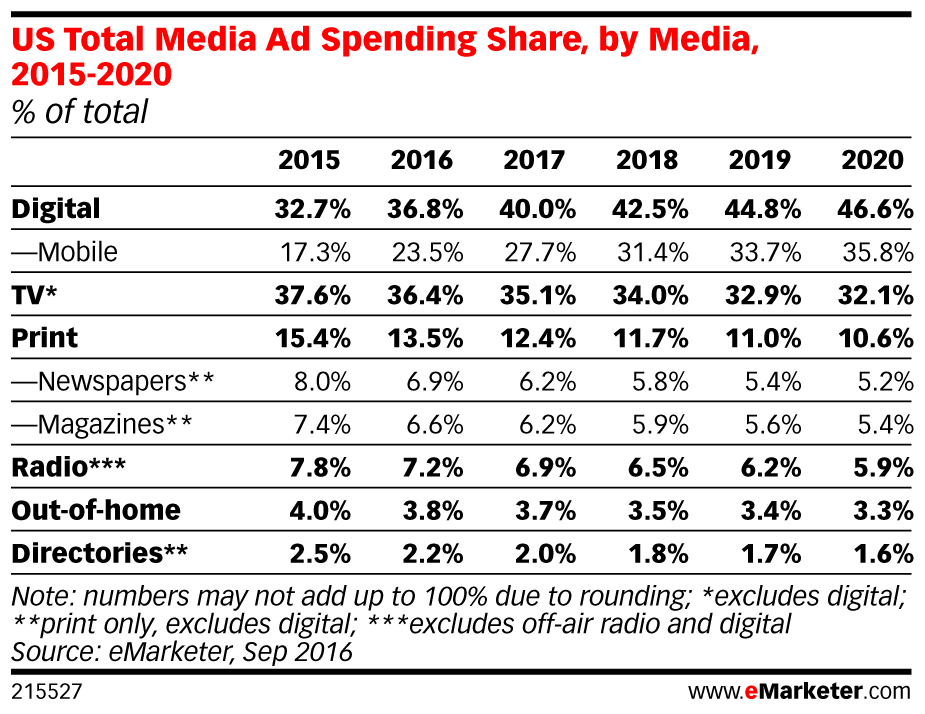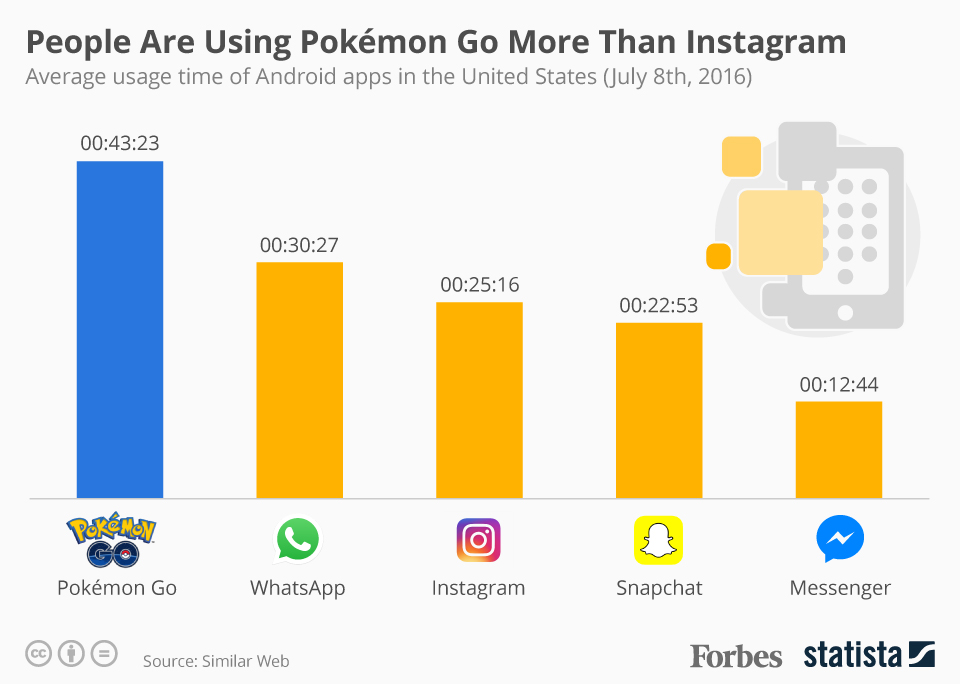Out of everything that happened in marketing this year, perhaps nothing was more symbolic than digital advertising spend overtaking TV ad spend. 2016 was a landmark year for the marketing, media, advertising, and tech space. Facebook’s controversial domination We used to talk about social media as a group. Facebook also became a key tool for marketers who increasingly use the platform to advertise and boost content because of its unique targeting features. Instead, it was a free augmented reality (AR) app that set the world ablaze: Pokémon Go. If 2016 was any indication, VR may end up as a niche market compared to the portability, sociability, and widespread applications of AR. And just about every major martech company launched or greatly improved its own AI assistants this year: Adobe has Sensai, Salesforce has Einstein, and IBM has Watson, just to name a few. Just ask Google and Facebook. It’s unclear whether the trend will continue next year, but it was a strange moment when two very different software worlds came together. And Facebook remained banned from the market even though it built suppression tools to appease the Chinese government.
Out of everything that happened in marketing this year, perhaps nothing was more symbolic than digital advertising spend overtaking TV ad spend. For more than half a century, TV had been the primary advertising medium for marketers. The internet changed all that—and we’ll look back at 2016 as the year that digital officially assumed the mantle.

But it wasn’t just spending habits that dominated headlines over the last 12 months. 2016 was a landmark year for the marketing, media, advertising, and tech space. So what happened? Here are the six storylines every marketer should know.
Facebook’s controversial domination
We used to talk about social media as a group. Now, there’s Facebook, and then there’s everyone else.
Facebook’s incredible boom continued unabated this year as the company brought in record profits; broke milestones (like 1 billion daily active users); and opened up its subsidiary, Instagram, to a wave of advertising investment.
Facebook also became a key tool for marketers who increasingly use the platform to advertise and boost content because of its unique targeting features.
But Facebook still had a massive list of controversies: Fake news. Censorship. Hyper-partisan content mills. Filter bubbles. Peter Thiel and Marc Andreessen. Multiple embarrassing measurement mistakes. India’s blockage of Free Basics. Its rocky Marketplace launch. The company’s absurd assertion that it “isn’t a media company.”
It’s safe to assume that 2016—despite all of the company’s financial successes—is a year founder Mark Zuckerberg would likely not want to repeat.
VR launches, but AR rules the headlines
Playstation VR, Oculus, and HTC Vive—the three big names in the virtual reality (VR) marketplace—all hit shelves this year, but they arrived with a bit of a thud. Playstation VR has done the best by far, at 745,434 projected sales, but none of the new products have exactly stormed the market.
Instead, it was a free augmented reality (AR) app that set the world ablaze: Pokémon Go.

Though Pokémon has fallen far from its perch as the world’s collective obsession, there’s no dismissing the power of AR (and good old-fashioned nostalgia) after the app’s explosive success.
Snapchat, likewise, continued to expand into AR with its first hardware product—Snapchat Spectacles—and improved on its iconic lenses, which can now alter the world around you as well as your face. Other companies started using other AR gadgets like Microsoft HoloLens and Google Glass for exciting commercial applications, such as letting factory workers see diagrams and instructions…
COMMENTS